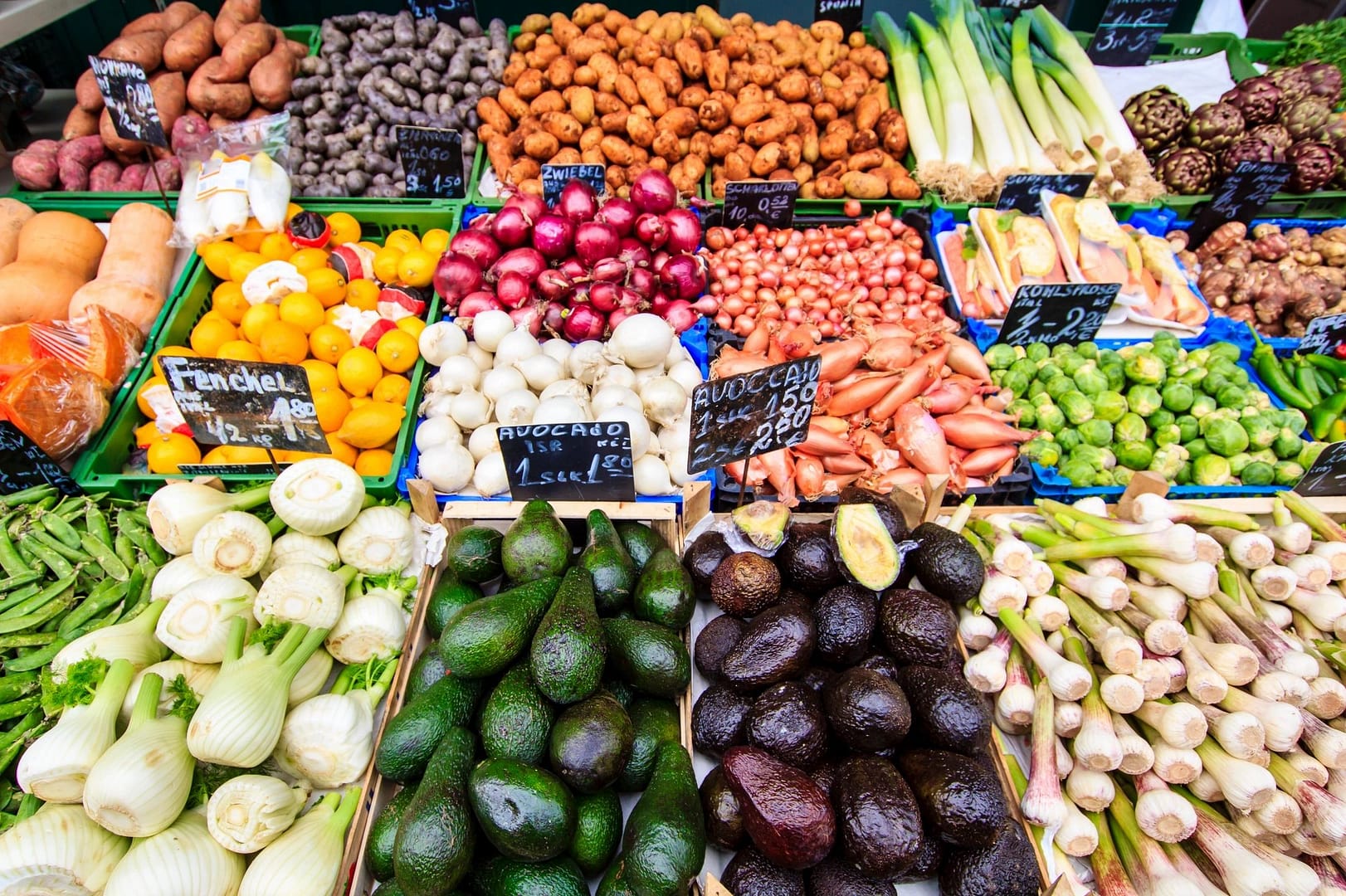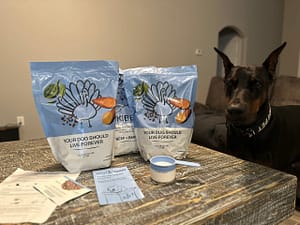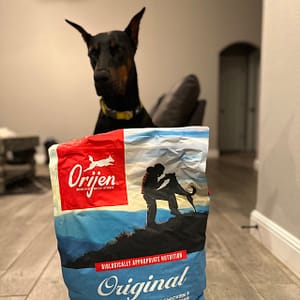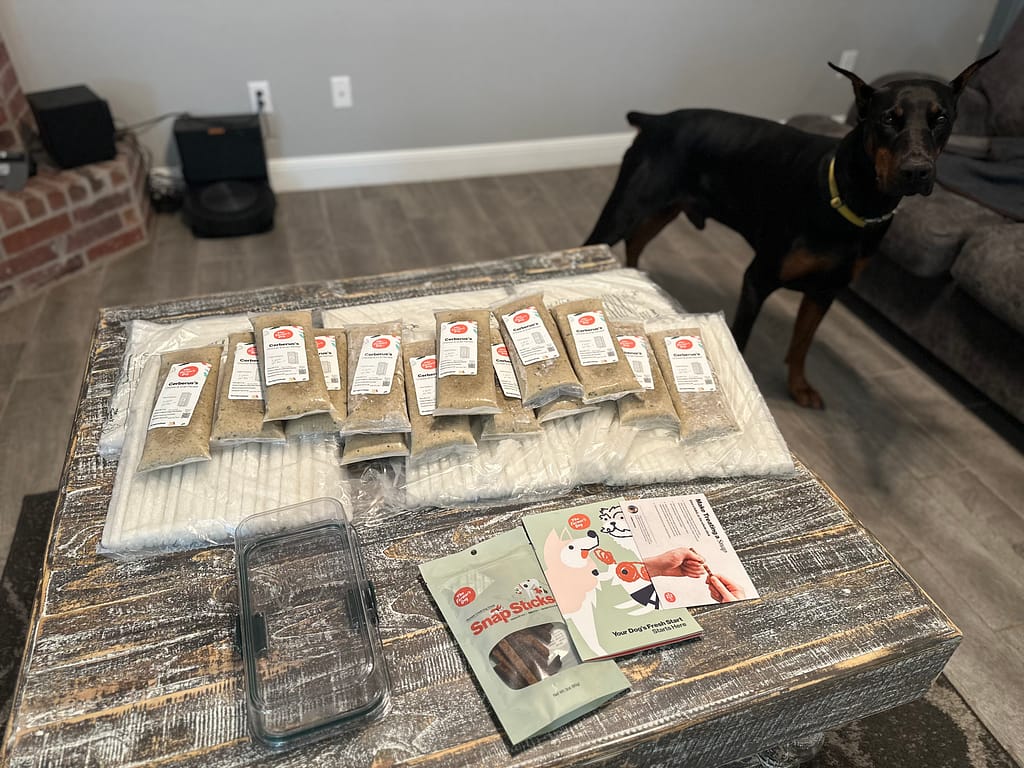(Dog Food Options) Can Dogs Eat These Human Foods?

So you’re at the table eating your meal and of course your dog has now come up and is giving you puppy eyes which then leads to the questions “is my food safe for my dog?” Many of the foods we consume are also fine for our canines but there are also several that are not. The following lists include some of the most popular foods that are safe and unsafe for your dog:
Foods Dogs Can Eat
-
Bananas: Bananas are safe for dogs and make a great low-calorie treat. They are high in potassium, vitamins, biotin, fiber, and copper. Due to their high sugar content, bananas should be given in minimal amounts as a treat. My dog is not keen on them so I generally avoid…he just pushes the bananas around on the floor and makes a mess.
-
Apples: Apples are a good source of vitamins A and C, as well as fiber. They can help clean your dog’s teeth and freshen their breath. However, remove the seeds and core first. Apple seeds contain trace amounts of cyanide which is poisonous for people and dogs. It is unlikely that your dog could ever eat enough apple seeds to become ill especially given that apples seeds are bitter to the taste but best to remove the seeds before feeding to your dog.
-
Watermelon: Watermelon is safe for dogs but be sure to remove the seeds and rind. It’s hydrating and packed with vitamins A, B6, and C.
-
Strawberries: Strawberries are full of antioxidants and high in fiber and vitamin C. They also contain an enzyme that can help whiten your dog’s teeth. This is again one of those foods that’s theoretically safe but my dog doesn’t seem to enjoy and has literally picked out of the bowl among other foods and left on the floor to be eaten if he’s not full after eating everything else.
-
Blueberries: Blueberries are safe for dogs and rich in antioxidants, fiber, and phytochemicals. They make a healthy, low-calorie treat. I find that frozen blueberries mixed into other foods are best if you want your dog to actually eat these.
-
Pineapple: Pineapple is safe for dogs in small amounts. It contains vitamins, minerals, and fiber. Be sure to remove the spiky skin and hard core.
-
Cucumbers: Cucumbers are safe and low in calories. They can be a crunchy, hydrating snack for your dog.
-
Broccoli: Broccoli is safe in small quantities and is a good source of fiber and vitamin C. However, too much can cause stomach upset. Just remember what happens your digestive tract after eating a ton of Broccoli. To be enjoyed in small quantities.
-
Carrots: Carrots are safe and healthy for dogs. They are low in calories, high in fiber, and good for your dog’s teeth.
-
Cheese: Cheese is safe for most dogs in moderation. It’s high in protein and calcium, but watch out for lactose intolerance and digestive issues.
-
Eggs: Eggs are safe and nutritious for dogs. They are a great source of protein, vitamins, and minerals. Conventional wisdom says to cook the eggs prior to feeding; however, a lot of people will forego that warning as I have at times.
-
Popcorn: Plain, air-popped popcorn is safe for dogs in moderation. Avoid butter, salt, and other toppings. A small amount of of most things is fine but this just isn’t something I’d feed your dog especially with the corn kernels involved and how they can mess up your canines gums if not properly popped.
-
Celery: Celery is safe and can freshen your dog’s breath. It contains vitamins A, B, and C.
-
Potatoes: Cooked, plain potatoes are safe for dogs. Raw potatoes and potato plants are toxic for dogs as they contain solanine. Boiled sweet potatoes also are fine for dogs and can be great for an upset stomach.
-
Peanuts: Peanuts are safe for dogs if they are unsalted and unseasoned. Peanut butter is also a popular treat, but avoid products containing xylitol. Freezing peanut butter into a kong is a great way to give your fido a lasting treat.
-
Peaches: Fresh peaches are safe in small amounts. Remove the pit as it contains cyanide.
-
Raspberries: Raspberries are safe in moderation. They are high in fiber and antioxidants but contain a natural sweetener called xylitol, which can be harmful in large quantities.
-
Green Beans: Green beans are safe and can be served raw, steamed, or canned (without salt). They are low in calories and high in fiber.
-
Pears: Pears are safe for dogs. They are high in vitamins C and K, as well as fiber. Remove the seeds and core.
Foods Dogs Should Avoid
-
Tomatoes: Ripe tomatoes are generally safe in small amounts, but the green parts contain solanine, which is toxic to dogs.
-
Oranges: Oranges are not toxic but can cause stomach upset due to their acidity. The high sugar content is also a concern. Dogs do not generally like citrus so the chances of accidentally ingesting are minimal except for dogs that will eat anything.
-
Grapes: Grapes and raisins are highly toxic to dogs and can cause kidney failure. Call your vet for advice if you believe your dog has ingested grapes.
-
Avocado: Avocado contains persin, which is toxic to dogs. The pit can also cause choking or intestinal blockage.
-
Mushrooms: Store-bought mushrooms are generally safe, but wild mushrooms can be highly toxic.
-
Cherries: The flesh of cherries is safe, but the pits, stems, and leaves contain cyanide and are toxic.
-
Onions: Onions are highly toxic to dogs and can cause damage to red blood cells, leading to anemia.
-
Cinnamon: Cinnamon is not toxic but can cause irritation in the mouth and digestive system. Inhaling cinnamon powder can cause breathing difficulties.
-
Coconuts: Coconut flesh and milk are generally safe in small amounts but can cause digestive issues. The shell can be dangerous if ingested.
- Chocolate: Chocolate contains theobromine and caffeine. Theobromine is toxic to dogs causing heart rate spikes that stimulate the nervous system. Chocolate poisoning symptoms may include vomiting, diarrhea, restlessness, increased urination, tremors, elevated or abnormal heart rate, seizures, collapse or death. Contact your vet or the Pet Poison Helpline (855-213-6680) if you believe your dog has ingested a significant amount of chocolate. A small amount of chocolate is unlikely to impact a large breed especially; however, if you have concerns, consult a professional.
Conclusion
While many people foods are safe and even beneficial for dogs, some foods can be harmful or even deadly. Always research before introducing a new food to your dog’s diet and consult with your veterinarian. Remember that just because a food is generally safe for dogs does not mean that your dog will not have an allergic reaction or major digestive issues so monitor your dog closely after trying new foods. Be clear with boarding facilities and pet sitters that your dog is not to eat anything not specifically approved by you.



